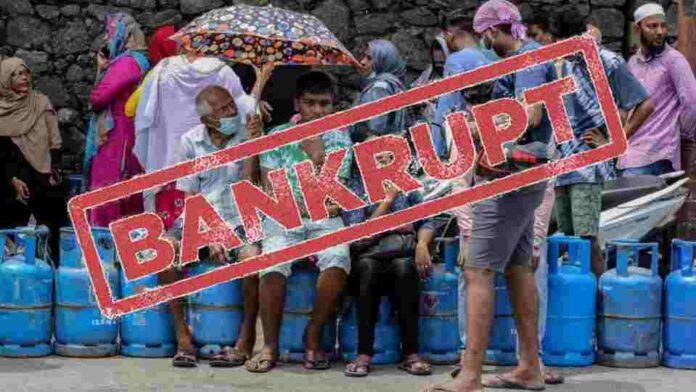The debate whether the so called soft default was right or wrong is still being argued. Court cases have been filed. The argument put forward by those who took the decision even without the approval of parliament is very elementary.
There was no money for essentials and medicine. So we had no choice. The question is other nations like Zambia planned for their default months ahead unlike Sri Lanka. On the other hand the Finance Ministry and the Central Bank of Sri Lanka was napping. They waited until it was imminent and made a public announcement, virtually drying up all the funding lines.
That too they called it a soft default.
They are certainly right when they say the country had no money. The Foreign Minister Sabry is a good lawyer, he fought for GotabayaR on his citizenship case very successfully, that does not mean he knows how the economy must be run. It was obvious he had been advised to do so.
Nandalal Weerasinghe is key among that coterie of people. Was the IMF consulted? He had tweeted saying that defaulting was the best decision at that time and there was no other options. Only those in power would know what the options were? Did he consult the private sector before this historic decision to bankrupt the country was taken? Was parliament consulted? Did cabinet approve it? In other economies there would have been serious consultations with the captains of industry and creditors to restructure the debt. Not simply defaulting with out a plan? It is alleged that a friendly country was on the verge of concluding a funding line. Only he would know? Not the public? Even a SME knows the consequences of an unplanned default. It is no different to a sovereign default.

Implications
Consequence of a debt default is humongous. A country’s lack of access to the credit market is an unavoidable consequence of a default. The country will be charged a high interest rate on its loans, it will not be granted a loan at all. The defaulted country’s credit rating will suffer, preventing foreign investment in to the country. Then comes the bailouts. Those come with conditions. Lenders imposed harsh austerity terms, requiring deep budget cuts and steep tax increases. They also require an overhaul its economy by streamlining the government. We have already seen the impact on the poor. What ever is said by those who took the decision to make Sri Lanka bankrupt has limited currency. Because it was an ill conceived decision.
There should have been a plan put in place months before the default. The bankruptcy was certainly a national tragedy and will reverberate for several decades to come. This debate will certainly not go away, accountability will come to haunt those who took the decision in the future. An expert committee should be appointed to investigate this decision to prevent such decisions been taken in the future.
Adolf
